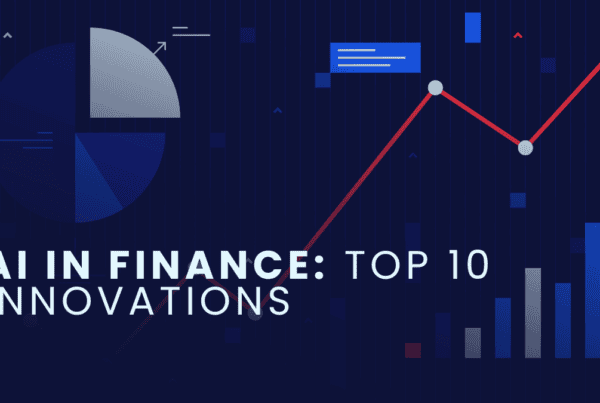
In the world of the World Wide Web, getting noticed online is like searching for gold. Marketers and content creators search through tons of internet searches, looking for the right keywords to make their stuff appear first on search engines.
A comprehensive study on SEO statistics and facts for 2024 has some interesting info. It says that lots of SEO projects start with looking for the right keywords. These keywords are super important for getting people to visit websites and getting good results in SEO. The report doesn’t give the exact time that people spend on keyword research, but it says keyword research can take a long time. Usually, SEO experts might spend anywhere from a few hours to a few weeks on keyword research to make sure they have a really good plan.
With so many websites competing for attention, a new method is stepping up to change how we find these important keywords – meet AI Keyword Research.
What is AI Keyword Research?
AI Keyword Research is a smart way to find the best keywords for getting noticed on search engines. It uses artificial intelligence (AI) to analyze lots of data and figure out which keywords work best. By studying how people search online, it can predict what keywords will be popular in the future.
AI Keyword Research makes it easier for marketers to improve their online content and stay ahead in the world of search engine optimization. Methods like this help marketers make their online stuff more visible and relevant, and that’s why 75.7% of marketers are now using AI tools for work.
How AI Keyword Research Works?
AI tools for keyword research are like super-fast detectives that help marketers find the best words for their content strategy. These tools look at what people are searching for online and which topics are popular. They’re good at spotting patterns, like which words often go together or are becoming more popular.
Plus, they try to understand why someone is searching for a particular term, which helps find words that match what people are looking for.
Not only that, but these tools also check out what your competitors are doing to see which words they’re using. This gives you an idea of what works well in your industry. And the best part? AI tools do all of this super quickly, saving you a lot of time. In a nutshell, they make finding the right keywords easier and faster, helping you create content that people want to see online.
Why AI Keyword Research?
AI Keyword Research offers several advantages over traditional methods, making it an increasingly popular choice for SEO professionals:
- Efficiency: AI tools can analyze vast amounts of keyword data quickly, which is far more efficient than manual analysis. For example, an AI tool can process thousands of web pages to identify keyword trends in minutes, something that would take a human hours or days.
- Predictive Analysis: AI can predict which keywords might become popular based on current search trends and historical data. For instance, before the release of a new smartphone model, AI can predict related search queries that are likely to spike in popularity.
- Precision: AI tools use natural language processing to understand the context around keywords, leading to more precise suggestions. For example, if you’re targeting the term “apple,” AI can distinguish between the fruit and the tech company based on context, ensuring you target the right audience.
- Comprehensive Insights: AI provides deeper insights into keywords, like user intent and related subtopics. For example, for the keyword “running shoes,” AI might reveal insights such as the intent to buy, preferred brands, and related searches like “running gear.”
- Competitive Edge: AI can uncover less obvious keywords that your competitors might not be targeting yet, giving you an edge. For example, while competitors target “healthy snacks,” AI might suggest targeting “nutritious snacks for work,” a less competitive but still highly relevant keyword.
These examples illustrate how AI can enhance keyword research, making it a powerful tool for SEO professionals.
Requirements of Doing AI Keyword Research
For a new website you can generate some general keywords with a single prompt but if you want to stay ahead in this game here are the requirements:
Seed Keyword or Topic or understanding of the industry
This is the foundational element of keyword research. It involves identifying a broad keyword or topic that is central to your content, product, or service. Additionally, it encompasses a deep understanding of your industry, including market trends, customer needs, and competitive landscape. This comprehensive insight helps in formulating a more targeted and effective keyword strategy. Here one thing you need to understand is that seed keywords play a crucial role in the keyword research process and have several advantages over using just industry terms.
Examples:
- For a website selling athletic footwear, a seed keyword could be “running shoes.”
- For a digital marketing agency, a seed keyword could be “online advertising,”
AI Tools
AI tools refer to software applications that use artificial intelligence algorithms to perform tasks that typically require human intelligence, such as learning, decision-making, and problem-solving.
Example: ChatGPT, Gemini, etc.
Prompts
In the context of AI, a prompt is an input given to an AI system to generate a specific output. It can be a question, a statement, or a command that guides the AI in producing the desired result.
Example: Generate 10 keywords with low competition for the athletic footwear industry.
Analytics Tools
Analytics SEO tools are software applications used to collect, process, and analyze data to gain insights and inform decision-making. Here, insights stand for detailed metrics on website traffic, user engagement, user behavior, etc.
Example: Google Analytics, Ahref, SEMrush, etc.
Content Optimization Tools and Methods
Content optimization involves improving the quality and visibility of digital content. Tools and methods for content optimization include keyword research, meta tags, and content analysis to enhance SEO and user engagement.
Example: Yoast SEO.
I hope now you have a clear understanding of each term and how they are applied in practice, so now let’s do keyword research:
How to Use AI For Keyword Research?
Step 1: Create an account on the AI Tool of choice
Creating an account on AI tools like ChatGPT or Gemini typically involves a few simple steps. Here’s a general guide for both:
For ChatGPT:
- Go to the ChatGPT website.
- Click on the “Sign up” button.
- Enter your email address or continue with a Google, Microsoft, or Apple account.
- Set a password that is at least 8 characters long.
- Check your email for the verification link and verify it.
- Enter your first name and last name.
- Provide your phone number for verification and enter the code sent to you.
- Once verified, you can start using ChatGPT.
For Gemini:
- Visit the Gemini website.
- Click on the “Get Started” button.
- Choose your country/state and continue.
- Enter your personal information and choose a strong password.
- Create your account and complete any required security verification, such as a 2-minute security quiz.
There are more AI tools you can use, the exact steps may vary slightly depending on the tool and any updates to their sign-up process.
Step 2: Find Seed Keywords or Topics
You can do it in the traditional way or in the modern way. The traditional way includes steps like brainstorming, Industry Research, analyzing the trends, spending hours on Keyword Research Tools, and then filtering your list. In the modern way, you can use AI tools to find good topics and seed keywords.
Method 1. Use AI tools like ChatGPT
Simply use Prompt:
- Give me 10 keywords that would be perfect for a bakery website.
- Provide some seed keywords for fitness equipment selling business.
Use action verbs like “generate,” “suggest,” or “provide” to instruct ChatGPT on the task at hand. Include your industry to ensure the generated keywords are relevant to your business.

Method 2. Analyze Trends
Using Google Trends for Keyword Research
Google Trends is a free tool from Google that provides data and graphs on the popularity of specific searches on Google and YouTube. Here’s how to use it:
- Go to the Google Trends website.
- Enter a keyword you want to analyze into the search bar.
- Click “Explore.” This will bring up a lot of information on the screen. You’ll see the overview graph showing the keyword’s popularity over time.
- Look at Google’s “People also ask” section. For this, you can get a bit more specific and enter a relevant keyword in the search bar.
- Use Google Trends to find related keywords. Google Trends shows you the exact % search volume increase for the related searches on the list.
Using Exploding Topics for Keyword Research
Exploding Topics is a tool that helps you spot keyword trends and topics that have viral potential but are still in their infancy. Here’s how to use it:
- Visit the Exploding Topics site.
- Search by category and time frame to identify new topics that are about to take off.
- Use Exploding Topics to find related keywords. It analyzes millions of sources to uncover them, including forum mentions, social media shares, and industry news article searches of related topics across the web.
Remember, these tools should be used in conjunction with each other for the best results. Each tool has its strengths and can provide different insights, so using them together can give you a more comprehensive view of your keyword landscape.
Step 3: Use Prompts
The industry was known, but now you have seed keywords and topics that are gaining popularity. So, use prompts and generate keywords:
ChatGPT prompts for SEO keyword research –
- Give me {Number} keywords for {topic/seed keyword/industry}?
- Provide {Number} longtail keywords that have a high search volume but low competition, all related to {topic/seed keyword/industry}.
- Give me {Number} keywords related to {seed keywords}, that would be perfect for {content type, like blog posts, product description, web copy, etc}.
- Generate keywords with low competition for the {industry} industry.
- Create a compilation of {Number} longtail, low-difficulty, high-volume keywords related to the {topic}
- Act as an SEO expert on keyword research. Give me {Number} keywords that would be relevant for optimizing a website home page focused on {topic/seed keyword/industry}
- You are a content marketing lead with this list of topics for a blog marketing campaign:{Add topics}. Provide search terms for each of these topics.
Feel free to customize these prompts and you can also try something out-of-the-box to generate some unique ones.
Step 4: Refine Your Keywords List
Refining your keyword list is a critical step in the AI keyword research process. It involves evaluating the keywords you’ve initially gathered and narrowing them down to the most relevant and effective ones for your content strategy. Here’s how you can refine your keyword list:
- Analyze Search Volume and Competition: Use AI tools to assess each keyword’s search volume and competition level. Prioritize keywords with a high search volume but lower competition, as they offer a better chance of ranking higher in search engine results pages (SERPs).
- Consider Search Intent: Understand the intent behind the searches. Keywords can be informational (ex. how to tie a tie), transactional (ex. buy a red tie), or navigational (ex. Amazon login). Align your keywords with the intent to meet the needs of your target audience effectively.
- Use Long-Tail Keywords: Long-tail keywords comprised 70% of searches online in 2019, showing their significance in SEO strategies. Incorporate long-tail keywords into your list. These are longer, more specific phrases that are less competitive and often have a higher conversion rate because they target users further down the purchase funnel.
- Leverage Predictive Analytics: Utilize AI’s predictive analytics to forecast the potential success of keywords. This can help you focus on keywords that are likely to bring in traffic and conversions in the future.
- Remove Irrelevant Keywords: Eliminate keywords that are not closely related to your content or do not align with your audience’s interests. This helps improve the focus and relevance of your keyword list.
Keywords that work well can change over time because of trends and updates in how search engines work. So, make sure to check and update your list of words regularly to keep it useful. By doing this, you’ll make sure your list of words works well for both people searching and search engines, which will help more people find and like your content.
Only AI keyword Research is not enough!
Simply finding keywords is not sufficient for content optimization; how you use them within your content is crucial. Here’s why:
- Contextual Relevance: Keywords need to be integrated naturally into the content. They should fit within the context and add value to the topic being discussed. This helps search engines understand the relevance of your content to the search query.
- Keyword Density: Overusing keywords, known as keyword stuffing, can negatively impact SEO. It’s important to maintain a balance, using keywords enough to be recognized by search engines but not so much that it hinders the readability of the content.
- Strategic Placement: The placement of keywords is also important. Including them in titles, headings, and the opening paragraph can improve SEO, as these are areas where search engines weigh more heavily when indexing content.
- Variation of Keywords: Using variations of your main keywords, such as synonyms and related terms, can help capture a wider range of search queries and improve the content’s visibility.
- User Experience: A popular quote from Stoney DeGator is “If You’re Not Meeting Your Visitors’ Needs, It Doesn’t Matter How ‘Optimized’ Your Site Is”. Ultimately, the content should be written for the user first, with keywords serving to enhance the user’s experience. Content that provides value, answers questions, and is enjoyable to read will perform better in search rankings.
By using keywords smartly, you ensure that your content is not only found but also appreciated and valued by both search engines and readers. This leads to better engagement, higher rankings, and more conversions.
Conclusion
AI Keyword research is becoming essential for SEO. It helps you find the best keywords to use in your content to get more people to visit and engage with it. With AI tools, you can make your research easier, understand what’s trending, and pick the most fruitful keywords to reach your audience. It’s not just about finding keywords, it’s about using them smartly to make content that people like and that ranks well in search engines. So, use AI to make your content better and stay ahead in the SEO game



